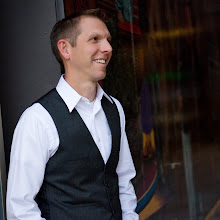"And I am sure of this, that he who began a good work in you will bring it to completion at the day of Jesus Christ"
"And in the same way is it not true to say that most of our foreboding concerning the future of the Christian Church arises from the same source [a lack of faith in Phil. 1:6]? It has become, alas, almost characteristic of Christian people today to speak with a note of moaning and grief and sorrow - 'What is going to happen? Look at the people, look at the indifference!' They paint their doleful picture of the world and even of the Church herself, and they cry, 'Will there be such a thing as organised Christianity at all in twenty or thirty years' time? What does the future hold for us?' There are those, too, who prophesy the end of big Christian meetings and talk about the possibility of small groups of people. Now it is not for me to say they are altogether wrong, but what I am concerned about is that in their talk and conversation one detects a note of profound pessimism concerning the whole future of the Christian Church and of the gospel. And this is due to one thing only, and that is the failure to realise the nature of the Christian life, the failure to grasp this doctrine which confronts us here in this magnificent statement of the Apostle"..."And there [in a solid understanding of God's love], I really think, you have the whole Christian philosophy of life. That is the thing which determines whether we do stand up to these things and emerge as conquerors, or whether we do not. If once you query the love of God you will go wrong; this is something a Christian should never do. Paul argued like this (and how valuable is this man's Christian logic): 'He that spared not his own Son, but delivered him up for us all, how shall he not with him also freely give us all things?" (Rom. 8:32). Now that is logic, and yet it is essential Christian truth. His argument is this: is it possible that God who sent his only begotten Son from heaven to earth, and even sent him to death on the cross in order that I might be saved and redeemed and made an heir of God, is it possible that that God does not love and is not concerned about me and has allowed me to be handed anyhow by life? No, it is impossible, it is unthinkable, and therefore I rule it out."
Confidence in these promises requires the supernatural and our participation. In Eph. 3:14-19, Paul prays for the spiritual strength to know the unknowable love of God and, yet,
the author of Hebrews warns us to not "throw away your confidence, which has a great reward. For you have need of endurance..." (Hebrews 10:35-36). Let's resolve to pray like Paul and follow the example of the psalmist:
"We have thought on your steadfast love, O God" (Psalm 48:9, emphasis added)
There is a great reward to lay hold of in this intentional "thinking", namely, confidence in God's sovereignty and love that brings joy, peace, wisdom, hope and self-forgetful service in every circumstance. This is a manner worthy of the gospel Christ (Phil. 1:27).
The best we can hope for if we grow cold in these things is to do the right things in the wrong manner. Woe to us Pharisees who grow cold, discontent and angry while confronted with the free justification given to us in Christ. May God save us from such a fate.









You wrote: "Now that is logic, and yet it is essential Christian truth. His argument is this: is it possible that God who sent his only begotten Son from heaven to earth, and even sent him to death on the cross in order that I might be saved and redeemed and made an heir of God"
ReplyDeleteI want to comment about grace and atonement.
(le-havdil) How to live in order to enable the Creator in His loving kindness to provide His kipur –atonement- is outlined in Tan’’kh ; and was also taught by the first century Ribi Yehoshua from Nazareth (the Mashiakh; the Messiah).
Read it here: http://www.netzarim.co.il
Anders Branderud